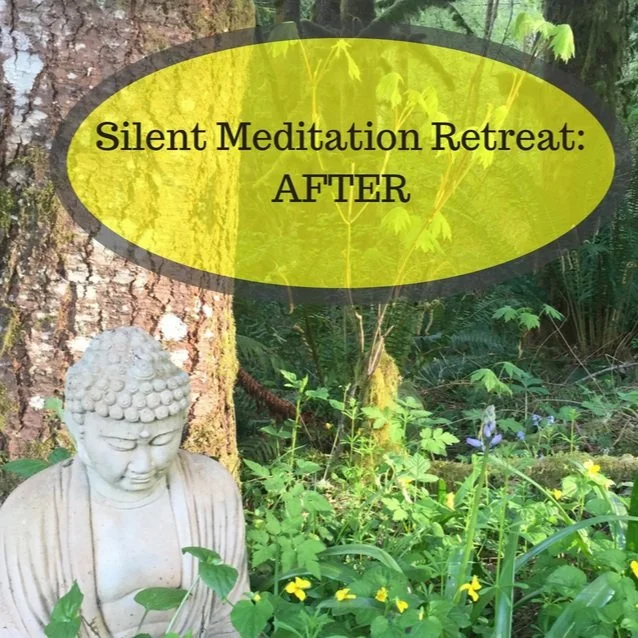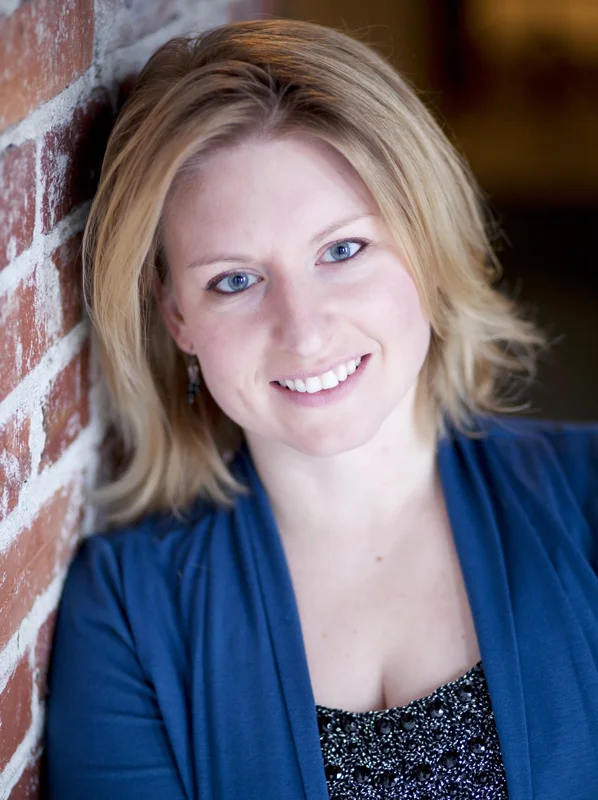Silent Meditation Retreat: AFTER
Returning to the "Real World"
It's been several months since I attended the six-day silent meditation retreat at Cloud Mountain. While I would love to say that I've been meditating daily and that I feel a sense of calm pulsing through my body, that would be a lie. But, before I dive into that, I would like to share the parting advice our instructor gave the last day of the retreat.
4 Recommendations from Santikaro
THE WORLD MOVES FAST: Santikaro gently reminded us that soon as we leave the retreat center we're going to be hit with speeding traffic, demanding people, and deadlines. I can attest to this... I went from no focus on time or task, to doing a load of laundry, getting myself showered/ready to go, repacking and picking my husband up from the airport - all in an hour and a half time period. And, that doesn't even take into consideration problems with his travel and trying to figure out how to be in two places at once to sell a sail boat for my mother.
MAKE a PLAN: Our society isn't designed to support us in spiritual growth. We need to develop a plan that will reinforce a healthy, ethical lifestyle. This include nutritious food, meaningful work, supportive social group, and entertainment. I'll talk more below about my plan and how I've done with it.
SIT in MEDITATION DAILY: Even if you don't want to, sit in meditation daily. 30 minutes per day is a good amount of time to shoot for. This will mean giving something up... watching television, playing video games, wasting time at work, over planning, or mindless hours spend on FaceBook/Pinterest/ETC.
KARMA DANA: Volunteer time or financial support to something. When we open up to things that are bigger than our own needs, our connect with others is magnified and our sense of purpose is strengthened.
My Plan... And, how I've done (or not done):
Meditate Daily: While on retreat, I figured out a schedule that would allow me to wake up 30 minutes earlier in the mornings in order to meditate in quiet before the rest of the house wakes up. I have not been successful with this strategy. In fact, I've only done sitting meditations a few times per month times since coming home from the retreat. I've personally experienced the benefits of a formal daily meditation practice, so I'm recommitting to incorporating this back into my life.
Increase Mindfulness Moments: We have the opportunity to practice mindfulness at every moment in our lives. I know that by consciously being present, I am fully in each moment which creates richness and fullness in my life. In assessing my progress since the retreat, I have done quite well with this. I have allowed myself to slow down with activities, I don’t carry a mental todo list with me at all times, and I’ve quite literally ‘stopped to smell the roses.’
Remove all Games from my Phone: I believe it was a week or so after returning home that I decided it was time to remove the "time suck" of mindless games on my phone. There have only been a few times that I've thought to myself that I wish I could just play a quick game of "________." Then I remind myself that it's never a quick game - that I can easily waste hours per week. FaceBook or other social media sites on my phone have never been as much of a distraction, so those are still there.
Decrease the Amount of Personal Emails I Send: During the retreat, I took stalk of how much time I was using where and if that time was beneficial. Social emails are important in keeping me connected with friends and family; however, I was using them as a way to avoid getting other tasks done. Now I limit personal email writing to once or twice a week. I do feel more focused on (mindful of) whatever project I am doing, so I think this is has been a good decision. I will admit that I’ve had to process through fears about missing out or upsetting people because I’m not as available through email.
Whaaat, I've already signed up for my next retreat?!?
In the first blog of this series, I mentioned attending this 6-day silent retreat sole based on the fact that it coincided, location and time-wise, perfectly with a planned vacation. I’m a big believer is paying attention to what the universe is throwing at me. Well, it happened again! A few days after returning home, an invitation to attend a 4-day retreat in October plopped into my email. This retreat is being held at a nearby lake, individual accommodations and it will be a mix between a silent practice and small/large group discussions. This aspect of being able to occasionally connect/discuss with people on retreat was one piece I would have liked during the last retreat. I'm excited to see where this next retreat and my continuing practice carries me.
My Overall Takeaway…
If you’ve ever considered attending a meditation retreat (or really a personal/growth oriented retreat of any kind), I highly recommend it. The opportunity to connect with myself - to learn so much more about who I am in an honest and vulnerable way - has been invaluable. And, the experience continues to guide my actions today. By keeping an open mind and soaking up every moment as it happens, you won’t be disappointed.

